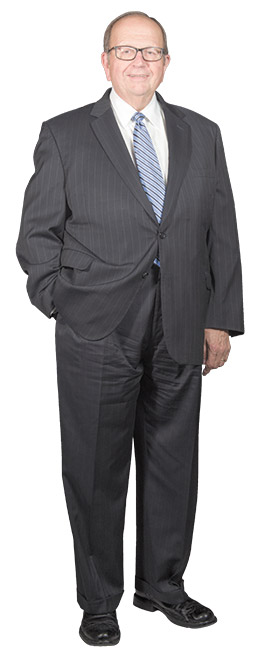Subscriber Benefit
As a subscriber you can listen to articles at work, in the car, or while you work out. Subscribe NowThe Hon. Brent Dickson, who retired at the end of April from the Indiana Supreme Court, has the distinction of being the second-longest service justice in the history of the court. During his 30 years as a justice, he was instrumental in refining Indiana law, writing nearly 900 opinions. Chief Justice Loretta Rush said in her 2016 State of the Judiciary address that he has “shaped the heart of Indiana law for years to come” in many ways, including unwavering ethics, tireless work and dedication to the rule of law. He served as chief justice for two years during a time of transition on the court with three new members. He also was an adjunct professor teaching courses on Indiana constitutional law at Indiana University’s Maurer School of Law and Robert H. McKinney School of Law. Before joining the Indiana Supreme Court, he spent 17 years as a general practitioner in Lafayette. The retired justice’s steady leadership strengthened the state’s court system and he exemplifies what it means to be a true public servant. And now that he’s retired, you may find him more on a different kind of bench — a piano bench.
 (IL photo/Eric Learned)
(IL photo/Eric Learned)Are there any cases that you either handled as an attorney or ruled on as a justice that stand out?
Yes. Particularly memorable for me as a lawyer were cases where my client was vindicated and his/her trust and confidence in the legal system was restored. As a justice, I have vivid memories of many cases, including both majority and dissenting opinions. Some examples are: Collins v. Day (1994), Art. 1, §23 equal privileges/immunities clause; IHSAA v. Carlberg (1997), Art.1, §12 right to remedy clause; Richardson v. State (1999), double jeopardy clause, Art.1, §14; Journal Gazette Co. v. Bandido’s (1999), Art.1, §9 responsibility for abuse of free speech clause; and several other cases, especially those involving principles of the Indiana Constitution. Also memorable is being a part of advancing mediation, adopting Indiana’s Evidence Rule 617, seeking to improve Indiana’s pretrial release systems, and expanding voluntary legal services for the poor.
What advice would you give to someone considering becoming a judge?
Immerse yourself in private trial practice. Learn as much as you can about how our justice system impacts the lives of ordinary citizens. Be active in local, state and national bar organizations, and in community and religious activities.
What is one thing that surprised you when you became a justice?
The sudden increase of my own control over my time.
Why did you become a lawyer?
I was fascinated by our jury trial system and drawn to the idea that lawyers enable people to avoid injustice and to achieve fair results by working within the legal system.
Is there a moment in your career you wish you could do over?
After the court decided Sholes in 2001, I wish I would have immediately sought to promote a comprehensive initiative to boost lawyer pro bono legal services.
What’s something about you not many people know?
I play piano and used to play ragtime piano for the Purdue “Salty Dogs” Dixieland band.
Have you noticed a change in civility since you began practicing?
Yes. While Indiana lawyers seem often to be the exception, many lawyers have become increasingly adversarial and perhaps opportunistic and moved away from the traditional concept of lawyers as respectful and wise counselors. This trend has likely been fostered by exaggerated media depictions of aggressive lawyers and the resulting effect on client and public expectations.
What’s something that you wish you could tell your younger self?
Place God first, treasure your spouse, guide your family, and live a balanced life.
What will the legal profession look like in 15 years?
With the rapid rate of change in technology and globalization, lawyers face an enormous challenge to retain and serve their traditional role as personal counselors and advocates for individual clients at affordable rates. Economic and regulatory forces may dramatically change law practice as we know it now.
If you couldn’t be a lawyer, what would you do for a living?
I would likely consider trying to be a journalist or a professional pianist.
Please enable JavaScript to view this content.
